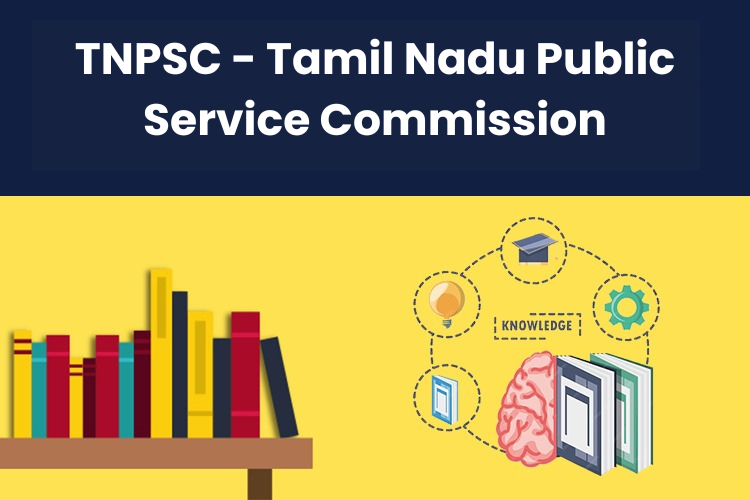Tamil Nadu Public Service Commission
The Tamil Nadu Public Service Commission (TNPSC) stands as a beacon for individuals aspiring to serve in various state government roles. Established to ensure a fair and transparent recruitment process, the TNPSC offers a plethora of opportunities across different levels of the state bureaucracy. This blog aims to unfold the essence of TNPSC, guiding candidates on their journey to becoming esteemed civil servants, with a special focus on how Kamaraj IAS Academy can pave the way to success.
History and Evolution of TNPSC:
Tracing its origins back to the British colonial era, the Madras Service Commission was the precursor to today’s TNPSC, established in 1929. It was rechristened as the Tamil Nadu Public Service Commission following the state's renaming. This transition marks a significant evolution in the commission’s mandate, expanding its role in recruiting competent individuals for the state's civil services. The journey from its inception to its current stature reflects a commitment to adapting and enhancing the recruitment process in line with constitutional and administrative reforms.
Structure and Functions of TNPSC:
The TNPSC operates under a well-defined organizational structure, headed by a Chairman and comprising members responsible for overseeing various recruitment activities. Its functions extend beyond mere examination conduction, encompassing duties like advising the government on recruitment procedures, promoting inter-service transfers, and handling disciplinary cases. This multifaceted role ensures that the commission remains at the forefront of recruiting adept individuals for Tamil Nadu's civil service, maintaining the integrity and efficiency of the state’s administrative machinery.
Exams Conducted by TNPSC:
The commission conducts a variety of exams, categorized mainly into Group 1, Group 2, Group 4, and other specialized recruitment tests. Each category targets specific administrative roles, with eligibility criteria tailored to the job’s demands. Group 1 exams, for instance, are geared towards high-ranking positions, while Group 4 exams cater to junior level posts. Understanding the nuances of each exam can significantly enhance a candidate’s preparation strategy, aligning it with their career aspirations within the state's civil services.
Preparation Strategies for TNPSC Exams:
Success in TNPSC exams demands a well-structured preparation approach. Candidates should focus on understanding the exam pattern, syllabus, and previous year question trends. Regular revisions, mock tests, and staying updated with current affairs are crucial. Moreover, a balanced preparation covering both the static and dynamic aspects of the syllabus can dramatically increase one's chances of success.
TNPSC Eligibility:
Eligibility criteria for TNPSC exams vary depending on the specific group exam.
However, general criteria include:
| Criteria | Details |
|---|---|
| Age Limit | 21 to 30 years for most exams; relaxations apply as per government norms for reserved categories. |
| Educational Qualification | A Bachelor's degree from a recognized university for Group 1 and 2; Higher Secondary Education for Group 4. Specific posts may require specific qualifications. |
| Nationality | Must be a citizen of India. |
| Others | Knowledge of Tamil is essential for almost all posts. |
TNPSC Exam Pattern:
The TNPSC exam pattern varies across different group exams but generally includes a preliminary exam, main written exam, and an interview. The pattern for Group 1 exams can be summarized as:
| Stage | Exam Type | Marks | Duration |
|---|---|---|---|
| Preliminary | Objective type | 300 | 3 Hours |
| Main | Descriptive type | 750 | 3 Papers, 3 Hours each |
| Interview | - | 100 | - |
Note: The pattern may vary for other group exams, with Group 4 and other categories typically not including an interview phase.
TNPSC Syllabus:
The syllabus for TNPSC exams covers a broad range of topics. For preliminary exams, key areas include:
- General Studies: History, Geography, Economics, Science, Current Events, etc.
- Aptitude & Mental Ability: Logical reasoning, Quantitative aptitude, Data interpretation.
The main exam syllabus is more detailed and varies according to the specific post.
Candidates should refer to the official TNPSC notification for an exhaustive syllabus.
TNPSC Recommended Books:
- Preparing for TNPSC exams requires a strategic approach, including selecting the right study materials.
- Below is a list of recommended books:
- General Studies: 'TNPSC General Studies Manual' by a reputed author.
- History and Culture of India: 'History of India' by a renowned historian.
- Indian Polity: 'Indian Polity' by M. Laxmikanth.
- Geography: 'Certificate Physical and Human Geography' by Goh Cheng Leong.
- Economy: 'Indian Economy' by Ramesh Singh.
- Science and Technology: NCERT Science books from 6th to 10th standards.
- Tamil Nadu History & Culture: 'Tamil Nadu History' by a local author.
- Aptitude and Mental Ability: 'Quantitative Aptitude' by R.S. Aggarwal.
Candidates are also advised to read the Tamil Nadu state board books, especially for history and culture, to gain a comprehensive understanding of the state-specific topics.
How Kamaraj IAS Academy Can Help:
Kamaraj IAS Academy stands as a pillar of support for TNPSC aspirants, offering comprehensive coaching programs that cater to the diverse needs of candidates. With experienced faculty, updated study materials, and a track record of success, the academy ensures that students are well-prepared to face the TNPSC exams confidently. Testimonials from our alumni reflect the academy’s commitment to nurturing the next generation of civil servants, making it an ideal choice for serious aspirants.
Embarking on a TNPSC exam preparation journey signifies the start of a challenging yet rewarding path towards serving the public. With dedication, hard work, and the right guidance from institutions like Kamaraj IAS Academy, aspiring candidates can achieve their civil service dreams. Let us join hands in nurturing responsible and efficient public servants for a better tomorrow.


 IAS-2026 - OPTIONAL / GEOGRAPHY / PUBLIC ADMINISTRATION / SOCIOLOGY / ANTHROPOLOGY / ORIENTATION ON 03 & 04-10-2025
IAS-2026 - OPTIONAL / GEOGRAPHY / PUBLIC ADMINISTRATION / SOCIOLOGY / ANTHROPOLOGY / ORIENTATION ON 03 & 04-10-2025 